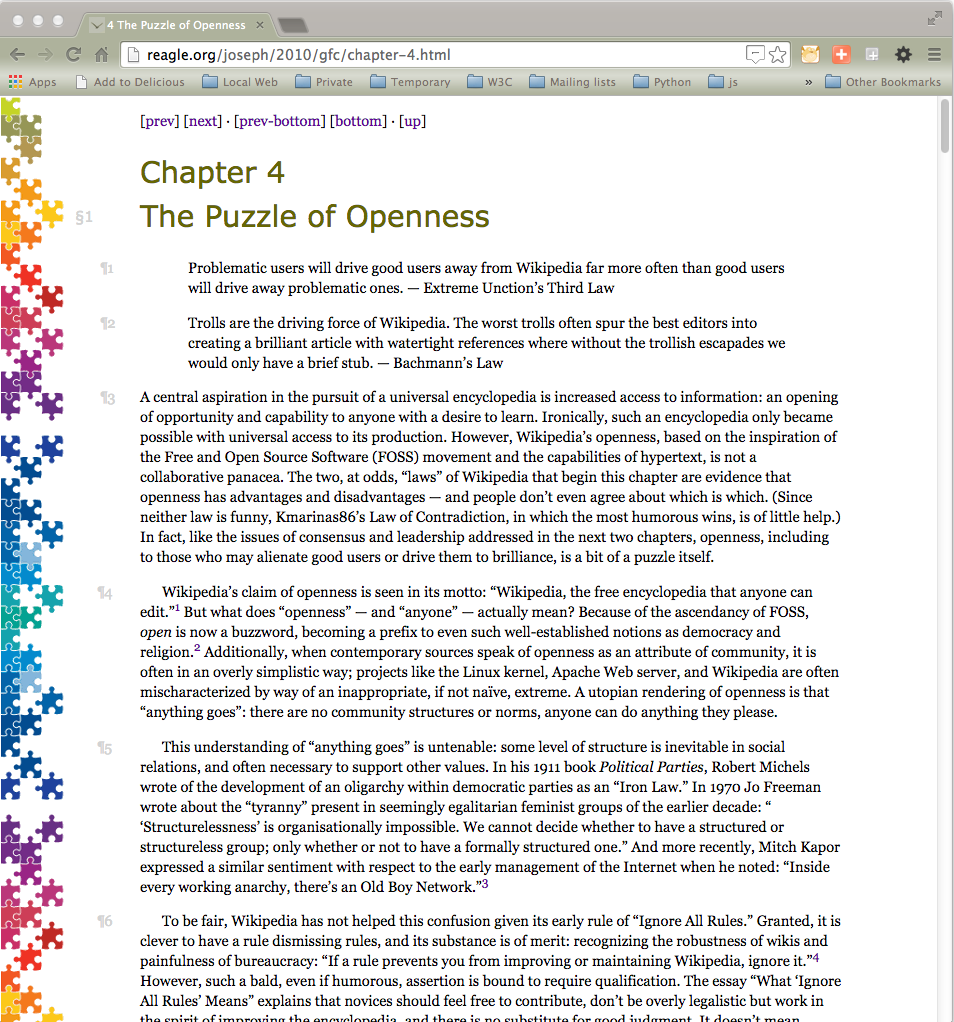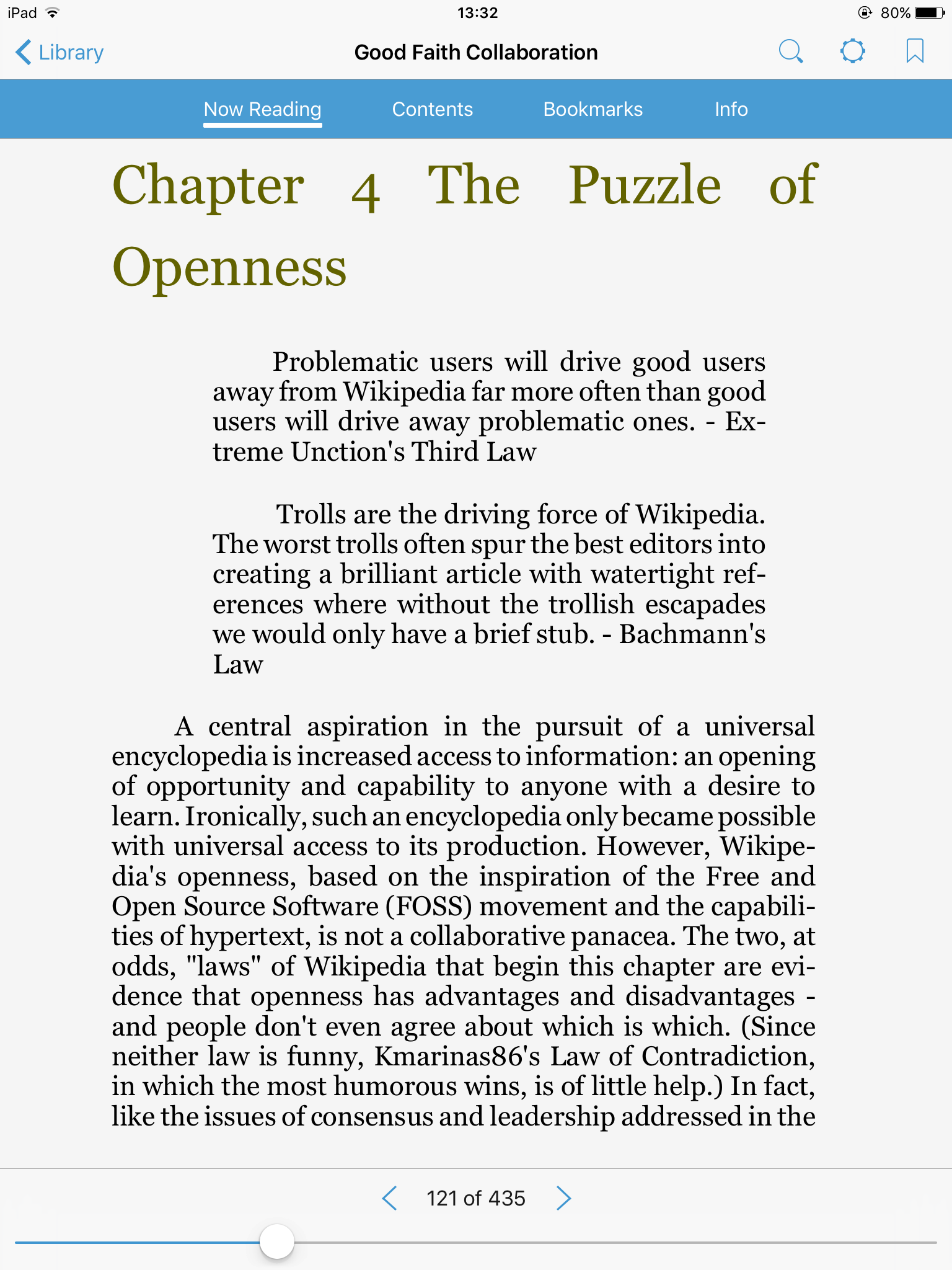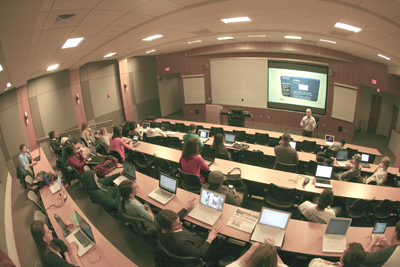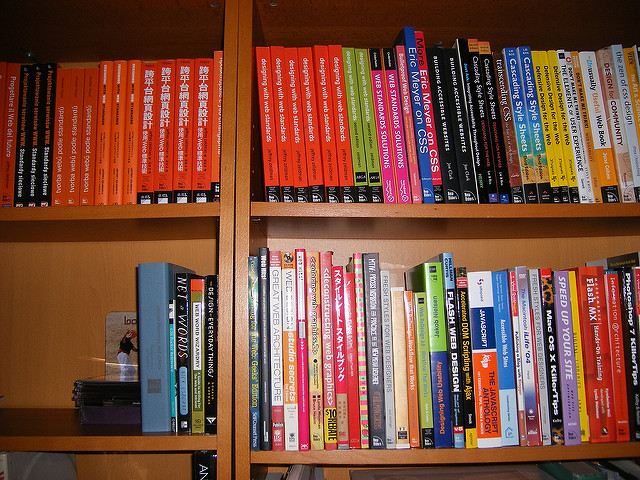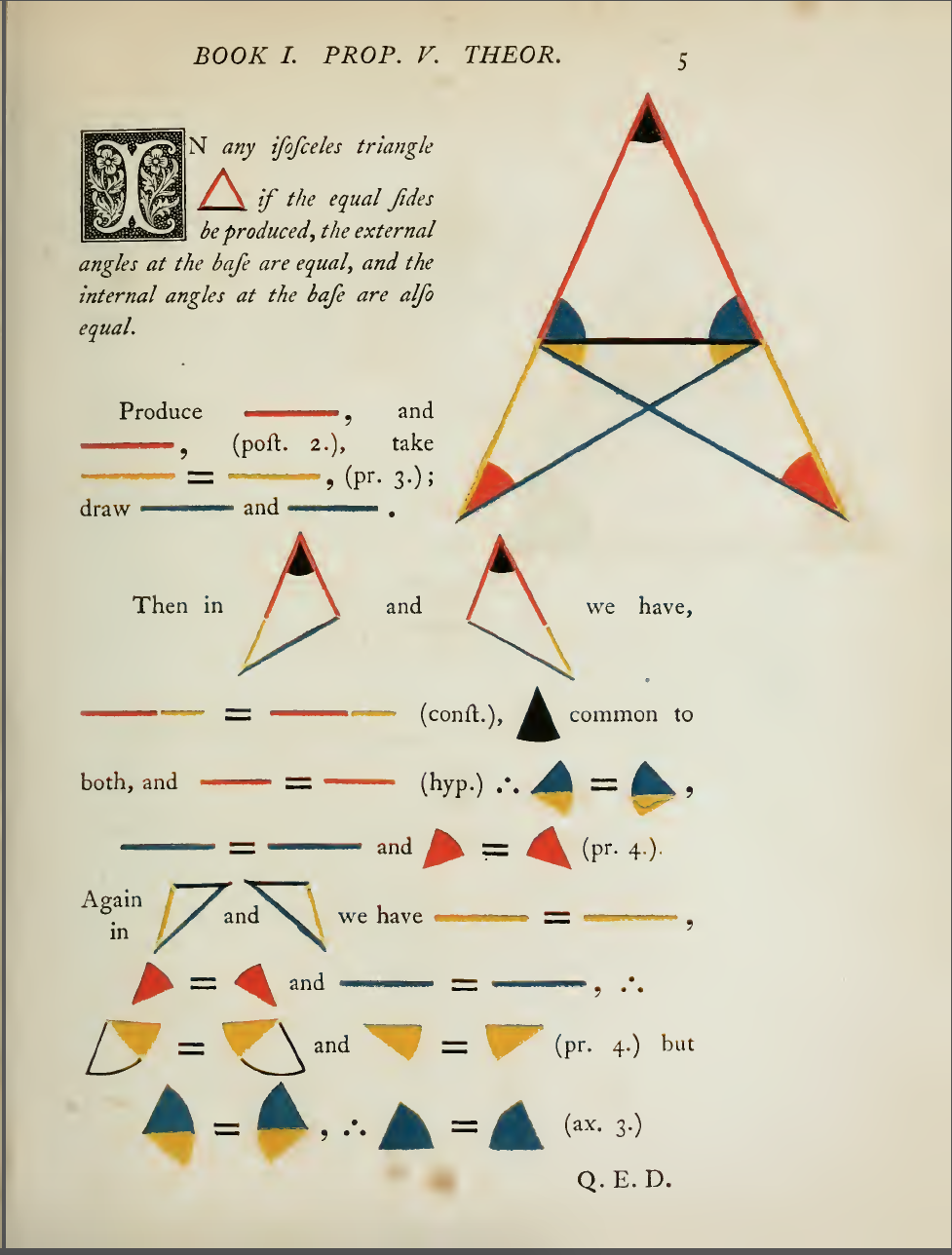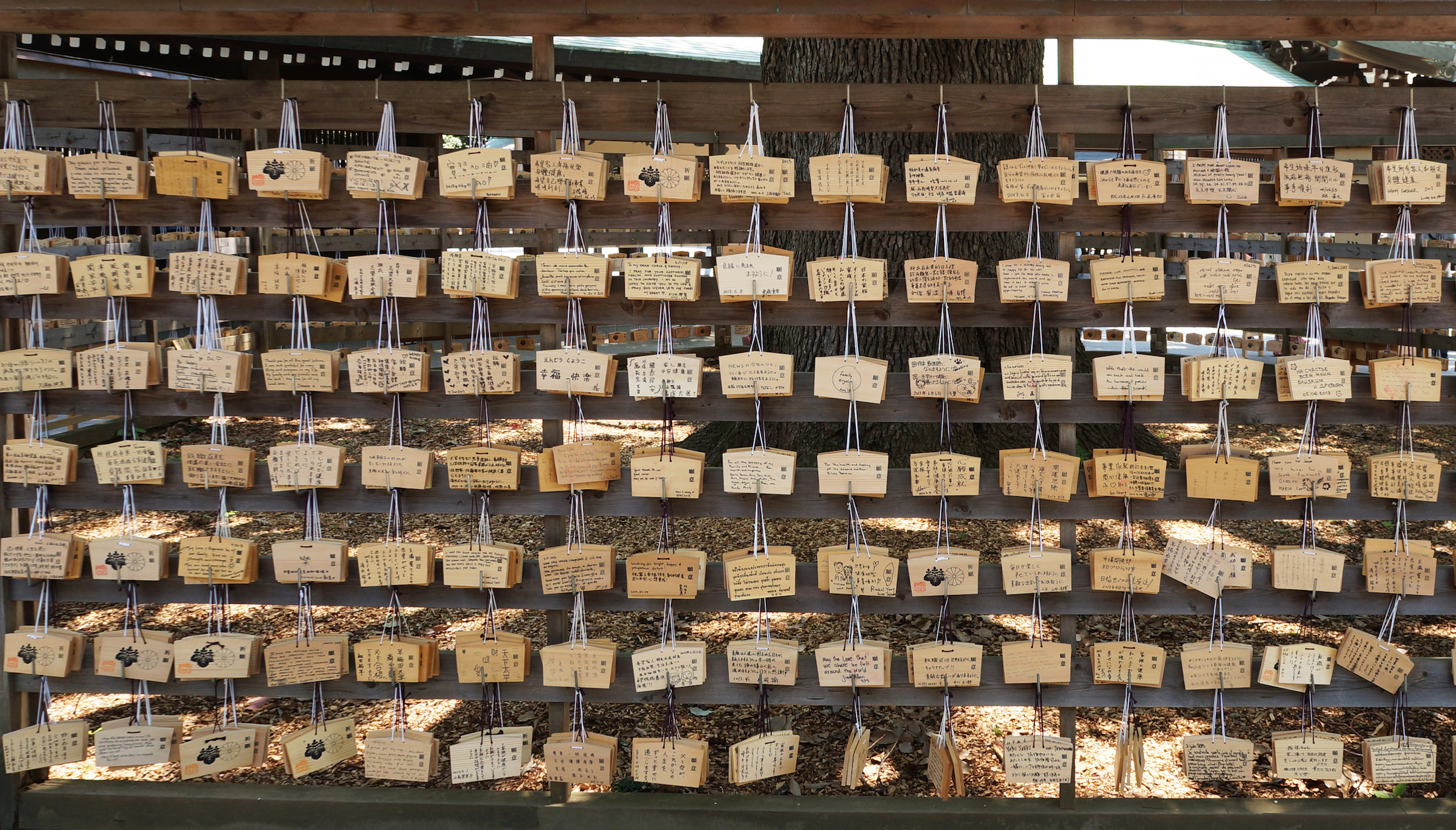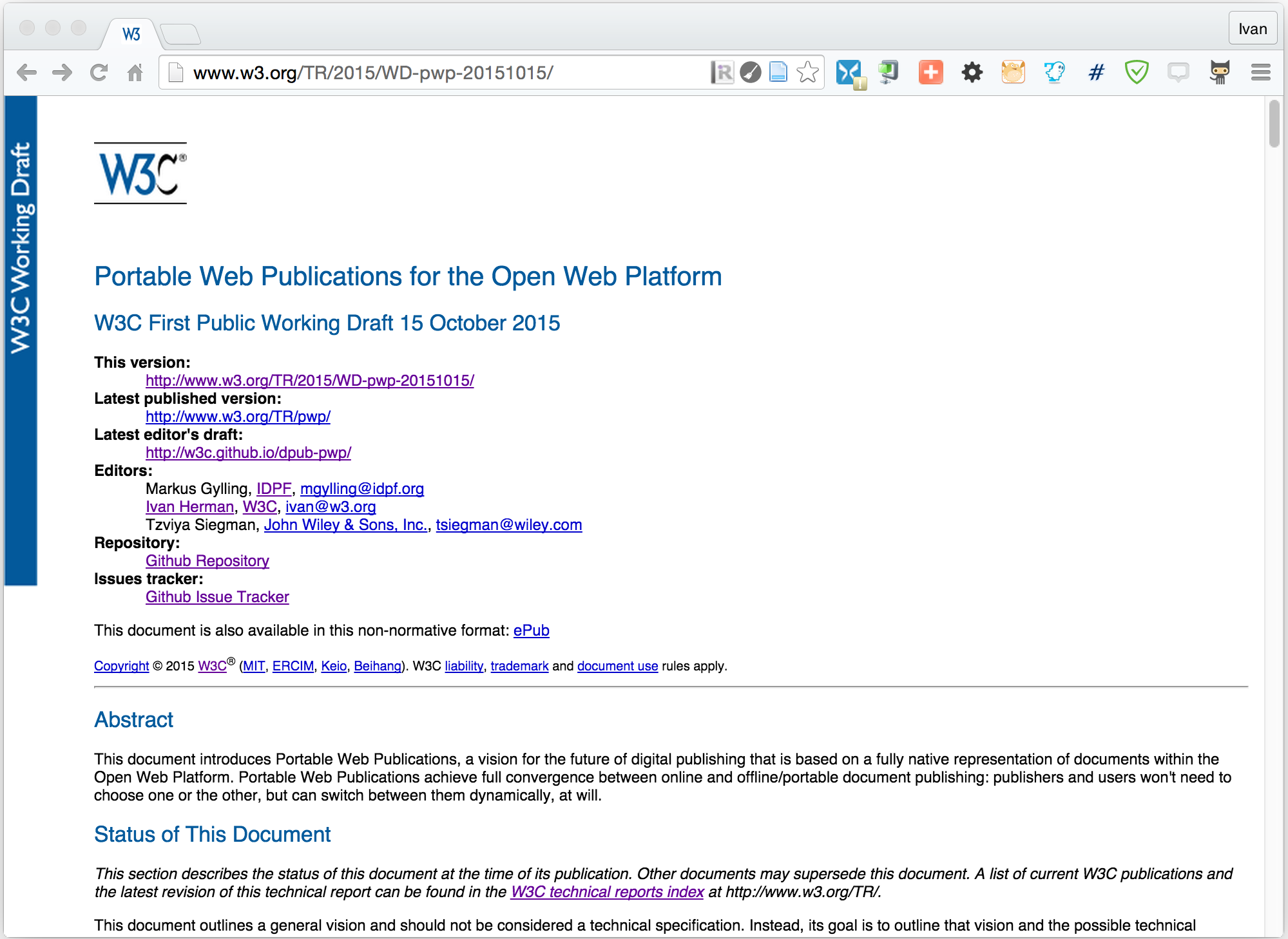Portable Web Publications: Technology Challenges
Ivan Herman, W3C
W3C Track @ WWW2016, Montréal, Canada
2016-04-13
 This work is licensed under a Creative Commons Attribution 4.0 License,
with attribution to W3C
This work is licensed under a Creative Commons Attribution 4.0 License,
with attribution to W3C
Copyright ©2016 W3C® (MIT, ERCIM, Keio, Beihang)


